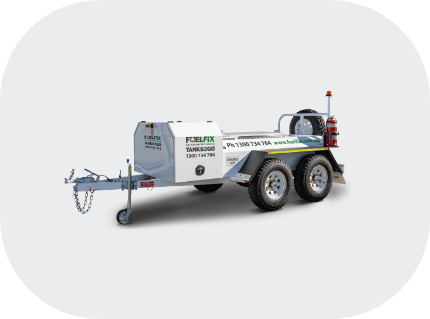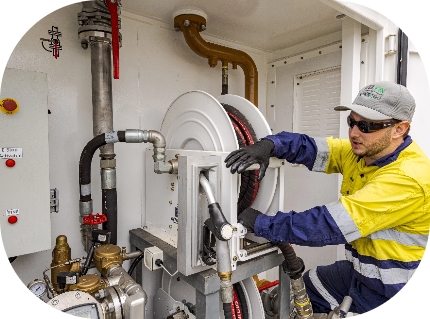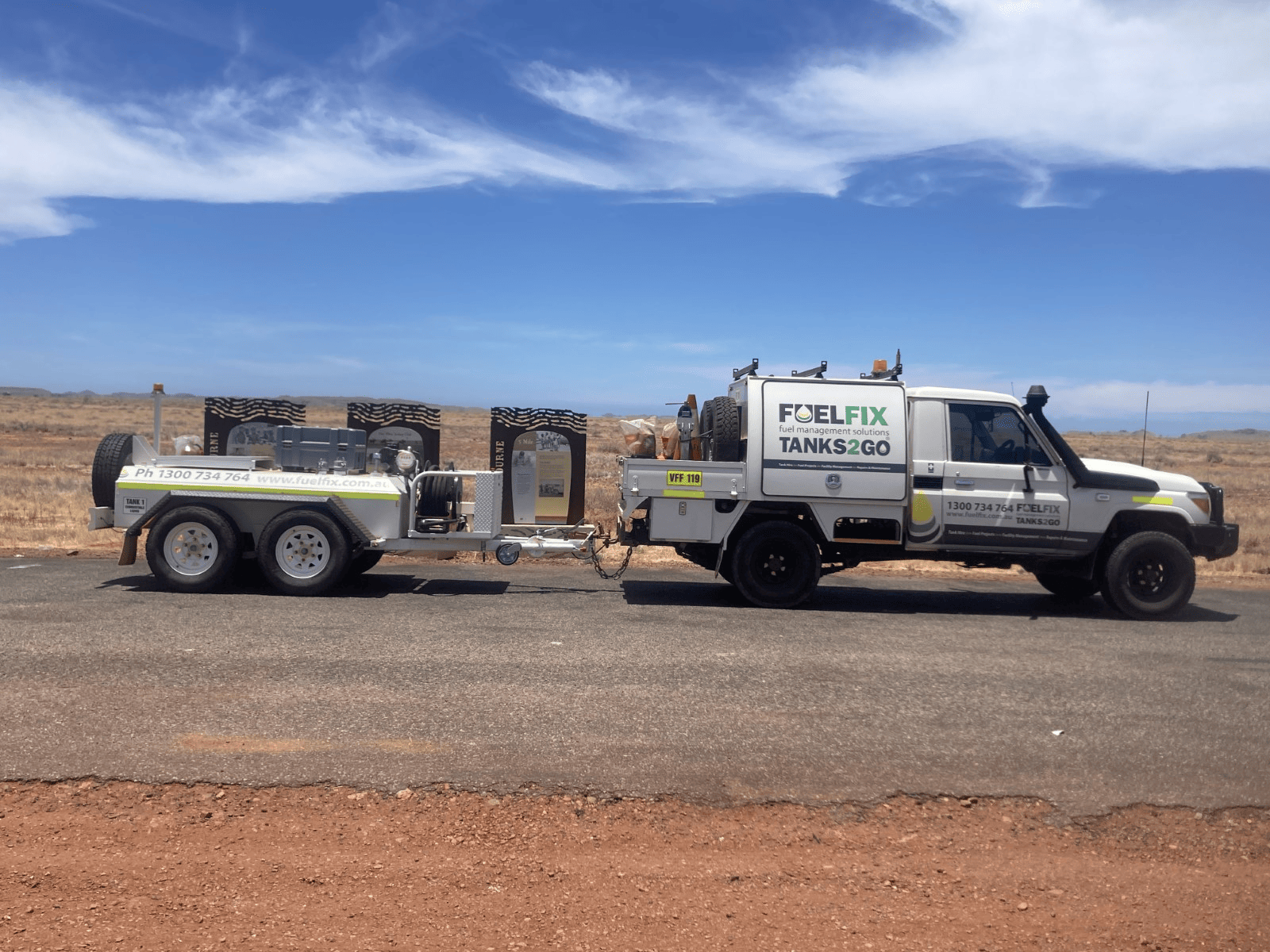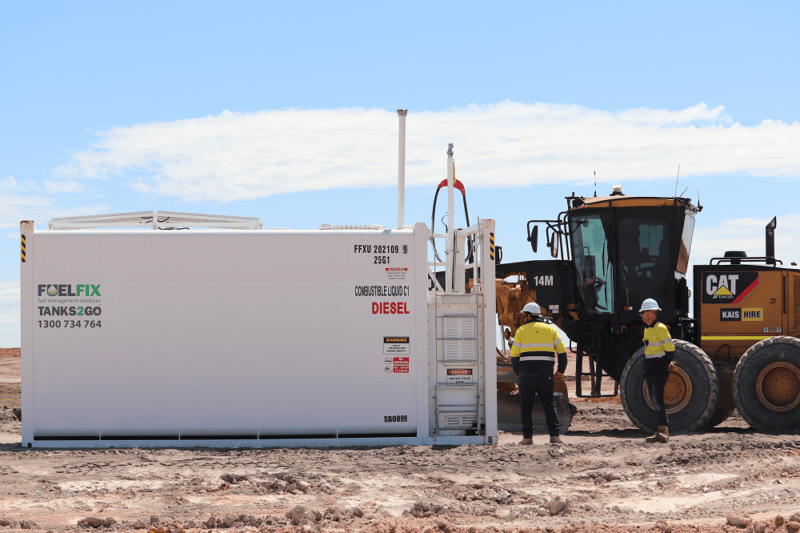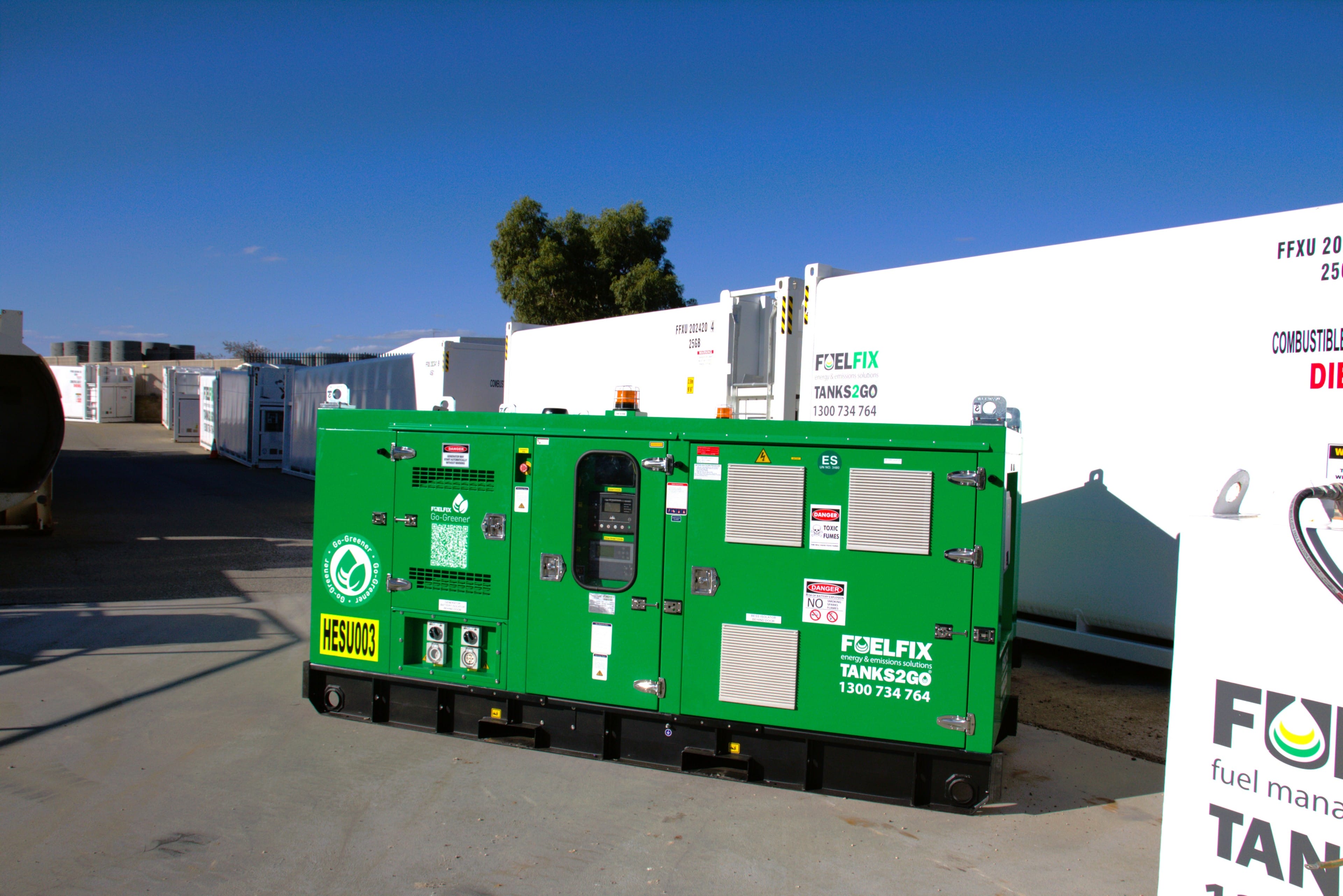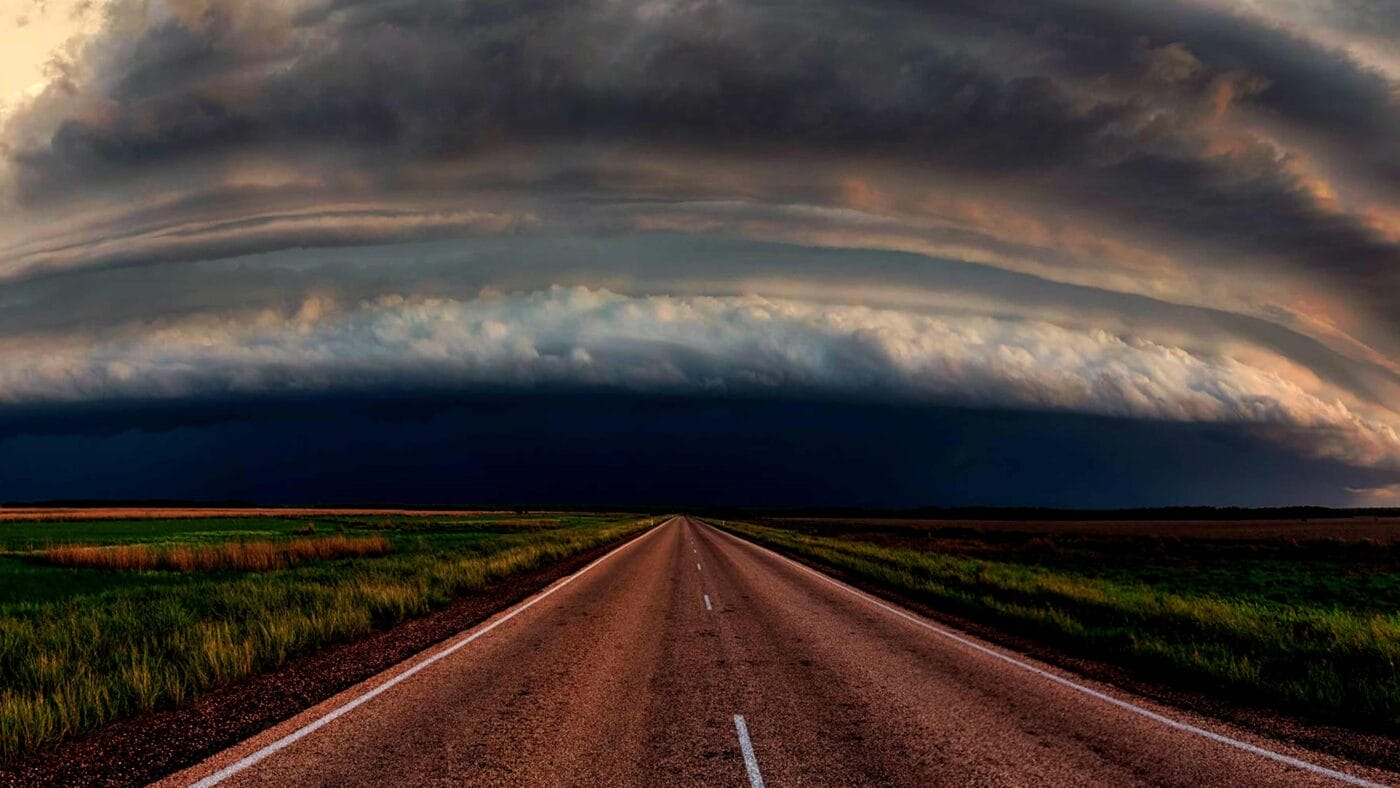
When cyclone season hits, fuel security becomes a top priority. Instead of investing in permanent fuel storage solutions, choosing a fuel tank for hire offers flexibility, affordability, and peace of mind. In this article, we’ll explain why hiring fuel tanks is the smartest solution for seasonal or emergency needs and how it can keep your operations running smoothly.
Preparing for the 2025–26 Cyclone Season
Australia’s diesel fuel consumption reached approximately 33 billion litres in 2024, and demand remains strong in 2025, driven by transport, mining, and agriculture sectors. But what happens when your supply is cut off? For hospitals in remote areas and businesses involving quarries, mines and rural construction, it’s imperative to have a contingency plan for fuel during times of uncertainty.
Cyclone season can be a challenging time for many businesses, especially those that rely on a steady supply of fuel. Investing in fuel storage tanks, fuel trailers, back-up power generation and lighting systems can provide a reliable solution to ensure your operations continue smoothly and safely, even during severe weather events like Australia’s cyclone season.
What is Australia’s cyclone season?
Tropical cyclones are one of Australia’s most harmful weather events and their locations are often difficult to predict and they tend to form erratically. According to the Australian Bureau of Meteorology, the 2025–26 Australian cyclone season officially runs from 1 November 2025 to 30 April 2026, but systems can form between July 2025 and June 2026.
Recent data from the Australian Bureau of Meteorology (BOM) indicates that in 2025-26 a bigger proportion of tropical cyclones will be of high intensity, with greater rainfall and higher storm surges due to rising sea levels. Over Australia, the frequency of tropical cyclones is likely to decrease but the proportion of category 4 and 5 events may increase.
According to BOM, if the average figures are maintained, it would see 10 tropical cyclones form in the Australian region with 3–4 making landfall. While the number, location and intensity of tropical cyclones varies every year, any tropical cyclone almost always brings damaging winds, heavy rainfall and flooding. With this in mind, companies that rely on fuel infrastructure should prepare and plan adequate fuel storage solutions in case the supply chain is impacted.
Tropical cyclones in Australia for 2025-26
So far, one named cyclone (Fina) has formed in the Timor Sea on 18 November 2025. There have been six tropical lows and no severe tropical cyclones yet. For 2025–26 season, the outlook indicates that the likelihood of severe tropical cyclones of Category 3, 4, or 5 is higher than usual:
- Australian region
Typically, 8 to 10 tropical cyclones form or pass through the Australian region in a season, with around three to four of these crossing the Australian coast. Outlook accuracy for the Australian region is moderate. - Western region
WA’s northwest coast remains highly exposed, with half of all Australian cyclones historically occurring in this region. La Niña conditions through early 2026 may increase cyclone activity and rainfall in northern and western coastal areas. It is predicted that at least 1 tropical cyclone in the Western region will create coastal impacts, regardless of how many make landfall. The average number of tropical cyclones to form in or pass through the Western region is 6-7 this season. Tropical Cyclone Fina is currently classified as a category two storm. It is expected to intensify further and make landfall in the Northern Territory, with wind gusts reaching up to 155 km/h. The cyclone is moving towards the coast and is predicted to cause significant weather impacts, including heavy rain and damaging winds. Outlook accuracy for the Western region is moderate. - Northwestern sub-region
Typically, 4-5 cyclones form in or pass through this area each season. Around 3 tropical systems (tropical cyclones, or their associated tropical lows) are expected to affect coastal areas of the Northwestern sub-region. Outlook accuracy for this region is moderate. - Northern region
The Northern region usually experiences 2 or 3 cyclones, and this season is expected to remain within that range. Roughly 75% of the tropical cyclones in the Northern region have some form of impact upon coastal regions. Outlook accuracy for this region is low. - Eastern region
The average number of tropical cyclones for this region is 3-4, and around one of these make landfall. Outlook accuracy for this region is moderate.
Source: Australian Bureau of Meteorology, Australian tropical cyclone season monitoring
The Business Impact of Cyclone Disruptions
Cyclones don’t just bring strong winds and heavy rain, they create a ripple effect across entire supply chains. When roads are flooded or damaged, fuel deliveries can be delayed for days or even weeks. Ports may close, and rail networks can be disrupted, leaving businesses without essential resources. For industries operating in remote or regional areas, these challenges are even more severe because alternative transport routes are limited.
Key vulnerabilities include:
- Transport delays: Damaged roads and bridges prevent fuel tankers from reaching your site.
- Port closures: Interruptions in shipping schedules affect bulk fuel imports.
- Power outages: Loss of electricity can halt plant operations and compromise essential facility functions.
- Isolation of remote sites: Mining, agriculture, and construction projects often rely on scheduled fuel deliveries. Any delay can stop production entirely.
How is fuel infrastructure impacted by the cyclone season?
A normal cyclone season can already impact the fuel supply chain, but the current situation with geopolitical tensions and natural disasters has also exacerbated certain issues and could affect how the domestic fuel tank industry responds to a major storm in the coming season.
The main issues to be aware of are that during a tropical cyclone it may be hard to deliver regular fuel loads for an unknown amount of time. If you rely on fuel, you should consider hiring a remote fuel tank or diesel fuel trailer as a back-up. The other major problem that can occur is that even if the fuel is able to reach you, there may be shortages and significant pricing fluctuations due to the market instability. Having your own fuel storage solution to rely on will allow you to see any shortage periods though safely.
Why Fuel Storage Tanks Are Critical for Emergency situations?
On-site fuel storage tanks act as a buffer against these disruptions. By maintaining adequate reserves, businesses can:
- Ensure operational continuity: Keep machinery, generators, and vehicles running even when external supply lines fail.
- Reduce downtime costs: Every hour of operations shutdown can translate into thousands of dollars in lost productivity.
- Enhance emergency preparedness: Stored fuel supports backup power systems, enabling critical infrastructure to function during outages.
- Improve resilience: Tanks designed for cyclone-prone regions offer durability and compliance with safety standards, reducing risk during extreme weather events.
Investing in robust fuel storage solutions isn’t just a precaution, it’s a strategic move to safeguard your business against the unpredictable nature of cyclone season.
>>Explore our fuel tank hire options for cyclone season
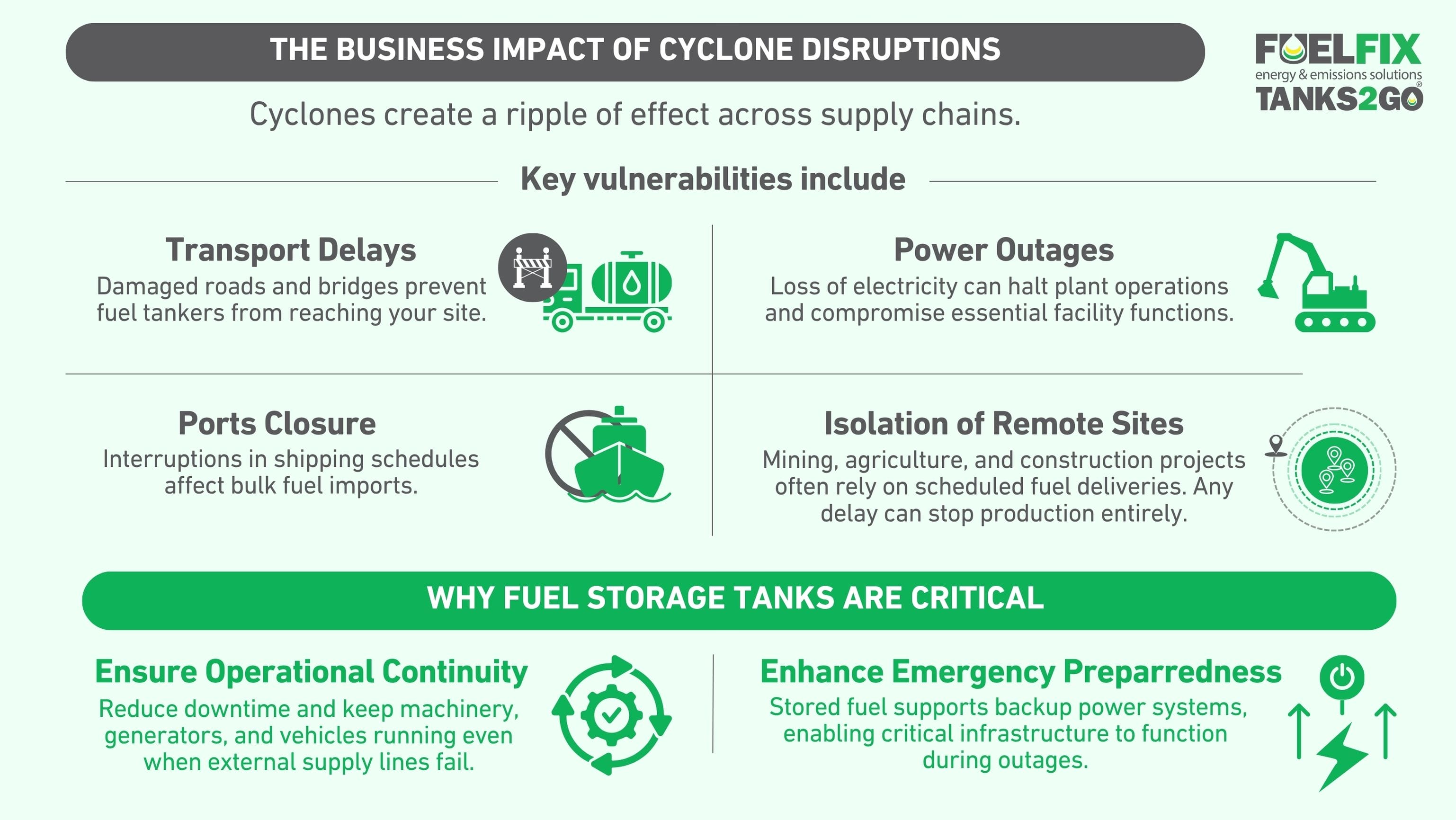
While fuel storage is critical during cyclone season, it’s only one part of a comprehensive emergency plan. Power outages and poor visibility are common during severe weather events, which is why having reliable power backup and adequate lighting is essential. Generators powered by your hired fuel tanks can keep operations running, while portable lighting ensures safety for staff and equipment. By combining fuel tank hire with power and lighting solutions, you create a resilient setup that minimises downtime and protects your business during unpredictable conditions.
Why Invest in Hybrid Power and Battery Storage Systems for Back-up Power?
Hybrid power generation and battery storage systems provides a resilient energy solution during cyclone-related disruptions. Unlike traditional setups that rely solely on external fuel deliveries, these systems ensure continuous power even when supply chains are under pressure.
By integrating battery energy storage systems into operations, businesses can:
- Ensure operational continuity: Maintain critical systems and equipment without depending entirely on fuel deliveries.
- Reduce downtime costs: Stored energy in batteries bridges gaps during outages, preventing costly shutdowns.
- Enhance emergency preparedness: Batteries provide instant backup power, supporting essential infrastructure when grid power is lost.
- Improve resilience: Hybrid systems reduce reliance on vulnerable transport routes and offer more sustainable, cyclone-ready energy solutions. When combined with renewable sources (such as solar) they also help lower carbon emissions during emergency situations.
Investing in hybrid power and battery storage isn’t just about sustainability, it’s a smart investment in operational resilience especially when unpredictable weather strikes and supply chains are disrupted.
>>Hire now your back-up power solution for cyclone season
Why Invest in Industrial Flood Lighting Systems during Wild Weather Season?
Reliable lighting is critical during cyclone season, especially for businesses operating in remote or high-risk areas. Industrial Lighting Towers provide powerful, wide-area illumination that ensures safety and productivity when visibility is compromised by severe weather or power outages.
By integrating robust flood lighting tower into operations, businesses can:
- Enhance safety: Well-lit work zones reduce the risk of accidents during emergency repairs or night operations.
- Maintain productivity: Adequate lighting allows teams to continue essential tasks even when natural light is limited due to storms or outages.
- Support emergency response: Flood lights enable quick and safe access for maintenance crews and emergency services during critical situations.
- Improve resilience: Modern industrial flood lighting towers are designed to withstand harsh conditions, ensuring reliable performance in cyclone-prone environments.
Investing in industrial lighting units isn’t just about visibility, it’s a proactive step to keep your workforce safe and your operations running smoothly during extreme weather events.
How can Fuelfix help?
Fuel infrastructure is already highly volatile during the cyclone season and other natural weather events; geopolitical tensions and market instability has only increased these uncertainties. Companies need to be thinking about and procuring contingency solutions like bulk diesel tanks and fuel trailers now in order to ensure that they can stay fully operational during turbulent times.
As a leading fuel storage provider in Australia, you can trust Fuelfix to provide flexible fuel management solutions, maintenance and repairs for various industries all over the country. Rather than accept fuel misuse and loss as a matter of course, engage with the professionals at Fuelfix to ensure that the profitability and operations of your business or organisation are maintained during difficult times.
We offer a country-wide footprint of equipment including a wide range of back-up power systems, fuel tanks for sale and hire, fuel trailers for hire and fuel storage solutions. Our qualified and industry-trained technicians are here for local support and quick response for your business – especially when the wild weather strikes.
Utilising long-standing relationships with various suppliers, Fuelfix has maintained a strong supply chain that provides peace of mind during unpredictable periods for our customer’s fuel supply. We’ll help you keep your operation up and running with accurate reporting methods, dependable security and other excellent features that have helped us cement our place as Australia’s largest provider of fuel storage tanks.
A contingency plan can reduce downtime in the unlikely event of a storm, cyclone or power outage. Let Fuelfix and Tanks2Go help you prepare and develop a strong fuel contingency plan for this storm season.
